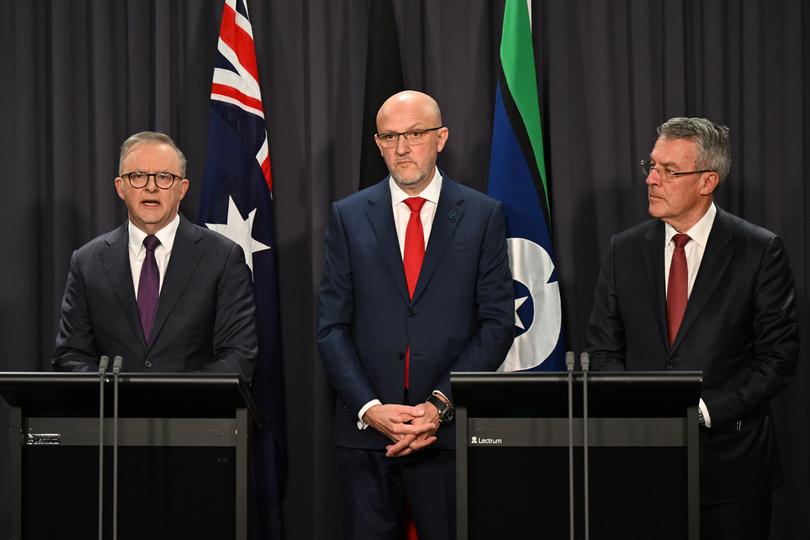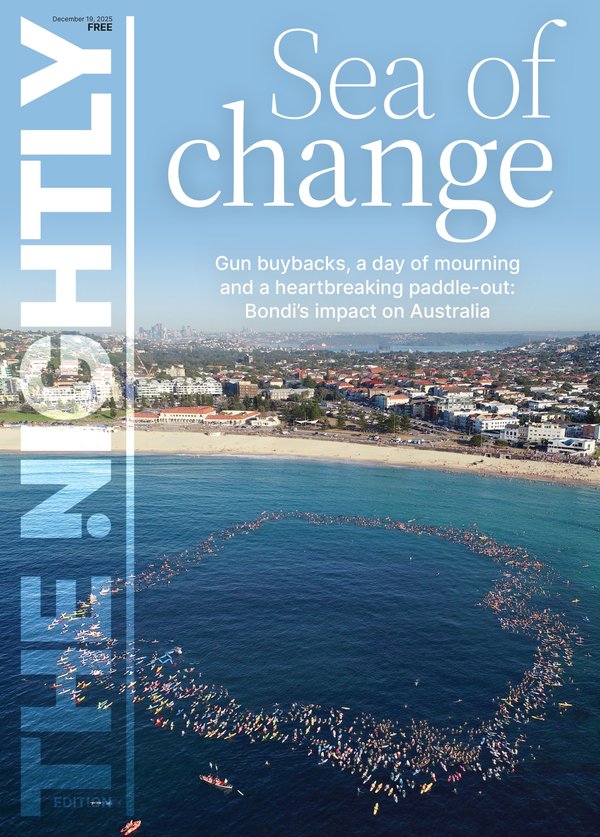EDITORIAL: Terror threat rises as we forget how to disagree
The last time Australia’s terror threat level was pushed up to “probable”, we at least had a good idea of where the danger was coming from.
That was in 2014 when the perceived threat from ISIS was at its zenith. Agencies were worried, not just about potential terrorist attacks carried out by foreign actors on Australian soil, but the possibility that those foreign actors would seek to radicalise Australians themselves, grooming them to carry out their evil deeds.
A decade on, and the threat looks very different.
Sign up to The Nightly's newsletters.
Get the first look at the digital newspaper, curated daily stories and breaking headlines delivered to your inbox.
By continuing you agree to our Terms and Privacy Policy.No longer is the principal danger from organised terror groups seeking to set up cells domestically.
Like so much else, the threat is now fractured. There are any number of radical ideologies which seek to suck people into their malicious vortex — COVID conspiracists, anti-Semitism, anti-authority, misogyny and far-right extremism to name just a few, alongside the previous players.
Australia’s spy agency ASIO says there’s a 50 per cent chance of a terror attack on Australian soil in the next year, most likely to be low cost, locally financed, and potentially carried out by lone wolves or small groups.
That 50 per cent likely may even be on the conservative side.
In just the past four months, there have been eight alleged or thwarted attacks, including the Wakeley church stabbing in Western Sydney, where a bishop was stabbed during a sermon while on a live stream, and the incident in Perth where a 16-year-old stabbed a man outside a hardware store before he was shot dead by police.
Hostile protests have kept MPs and staff locked out of their own electorate offices. In June, a 19-year-old was charged with offences related to planning a terrorist attack. His 200-page manifesto is alleged to have included threats against Anthony Albanese’s family.
Terror is no longer something that happens solely in other countries. It has arrived on our shores and the threat is deadly serious.
Part of the problem appears to be that we are forgetting how to engage in sensible, respectful debate.

Now, we’re expected to pick a side and defend our position.
“Unfortunately, here and overseas, we’re seeing spikes in political polarisation and intolerance, uncivil debate and unpeaceful protests. Anti-authority beliefs are growing, trust in institutions is eroding, provocative inflammatory behaviours are being normalised,” is how ASIO boss Mike Burgess explained the way in which Australia’s security environment had grown “more volatile and more unpredictable”.
The situation isn’t helped by the fact that our leaders themselves aren’t above using dangerous or polarising rhetoric for political gain.
In particular, in recent months, there have been a number of instances in which Federal politicians have used anti-Semitic slogans, adding fuel to the climate of polarisation. These are the people who should be leading by example as we seek to re-learn how to disagree with one another without violence or pettiness. Reason and respect are our greatest weapons against the terror threat.
